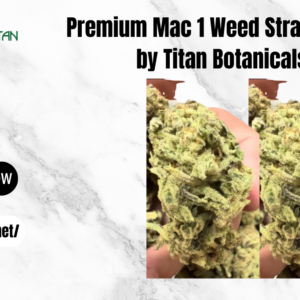Introduction
Protein is a crucial nutrient that our bodies need to build and repair tissues, make enzymes, hormones, and other body chemicals. It’s a macronutrient, meaning we need it in relatively large amounts. But where should we get our protein from? Is it better to stick with traditional animal-based sources or make the switch to vegan options? This article will dive into the nutritional differences between vegan and animal-based proteins, helping you make informed dietary choices.
Understanding Proteins
What Are Proteins?
Proteins are large, complex molecules made up of amino acids. They play many critical roles in the body, from building muscle and repairing tissues to producing enzymes and hormones. Our bodies need 20 different amino acids to function properly, nine of which are essential because our bodies can’t produce them.
Role of Proteins in the Body
Proteins are like the building blocks of our body. They are involved in nearly every cellular function, including:
- Building and repairing tissues
- Making enzymes, hormones, and other body chemicals
- Supporting immune health
- Providing energy when carbohydrates and fats are not available
Animal-Based Proteins
Common Sources
Animal-based proteins come from meat, dairy products, and eggs. Some popular sources include:
- Chicken
- Beef
- Pork
- Fish
- Milk
- Cheese
- Yogurt
- Eggs
Nutritional Profile of Animal-Based Proteins
Animal proteins are considered complete proteins because they contain all the essential amino acids our bodies need. They are also rich in vitamins and minerals like vitamin B12, vitamin D, omega-3 fatty acids, iron, and zinc.
Benefits of Animal-Based Proteins
- Complete Amino Acid Profile: Animal proteins provide all essential amino acids in the right proportions.
- High Bioavailability: The body can easily digest and absorb animal proteins.
- Rich in Micronutrients: They offer essential vitamins and minerals not always present in plant foods.
Vegan Protein Sources
Common Sources
Vegan proteins come from plants. Some excellent sources include:
- Legumes (beans, lentils, chickpeas)
- Nuts and seeds (almonds, chia seeds, flaxseeds)
- Soy products (tofu, tempeh, edamame)
- Grains (quinoa, brown rice)
- Vegetables (broccoli, spinach)
Nutritional Profile of Vegan Proteins
Vegan proteins can also be complete but often require combining different sources to get all essential amino acids. They are typically lower in saturated fats and cholesterol and higher in fiber, antioxidants, and phytonutrients.
Benefits of Vegan Proteins
- Heart Health: Lower in saturated fats, helping to reduce cholesterol levels.
- Rich in Fiber: Aids digestion and promotes a healthy gut.
- Packed with Antioxidants: Helps fight inflammation and reduces the risk of chronic diseases.
Comparing Amino Acid Profiles
Essential Amino Acids
Our bodies need nine essential amino acids from our diet: histidine, isoleucine, leucine, lysine, methionine, phenylalanine, threonine, tryptophan, and valine.
Complete vs. Incomplete Proteins
- Complete Proteins: Contain all nine essential amino acids. Examples include meat, dairy, eggs, quinoa, soy, and buckwheat.
- Incomplete Proteins: Lack one or more essential amino acids. Most plant-based proteins fall into this category but can be combined to form complete proteins.
Examples of Complete Vegan Proteins
- Quinoa: A grain that provides all essential amino acids.
- Soy: Products like tofu, tempeh, and edamame are complete proteins.
- Buckwheat: Another grain that offers a complete amino acid profile.
Digestibility and Absorption
Bioavailability of Animal vs. Plant Proteins
Animal proteins typically have higher bioavailability, meaning they are more easily digested and absorbed by the body. However, certain plant proteins, especially when combined correctly, can also provide high bioavailability.
Factors Affecting Protein Absorption
- Fiber: High fiber content in plants can slow down protein absorption.
- Anti-nutrients: Compounds in plants like phytic acid can inhibit the absorption of certain nutrients.
Health Benefits and Risks
Health Benefits of Animal-Based Proteins
- Muscle Maintenance: High-quality protein supports muscle growth and repair.
- Micronutrient Rich: Provides essential nutrients like B12, iron, and omega-3s.
Health Benefits of Vegan Proteins
- Heart Health: Lower in cholesterol and saturated fats.
- Weight Management: Higher in fiber, which promotes satiety.
- Reduced Cancer Risk: Packed with antioxidants and anti-inflammatory compounds.
Potential Risks Associated with Each Type
- Animal-Based: High in saturated fats and cholesterol, which can increase the risk of heart disease.
- Vegan: Risk of deficiencies in B12, iron, and omega-3s if not properly planned.
Environmental Impact
Environmental Impact of Animal Farming
Animal farming is a significant contributor to greenhouse gas emissions, deforestation, and water usage. It also leads to habitat destruction and loss of biodiversity.
Environmental Benefits of Plant-Based Diets
Plant-based diets have a lower environmental footprint. They use fewer natural resources, produce fewer greenhouse gases, and promote sustainability.
Cost Comparison
Cost of Animal-Based Proteins
Animal proteins can be expensive, especially high-quality meats and fish. The cost also includes the environmental impact and health care costs associated with diets high in animal products.
Cost of Vegan Protein Sources
Plant proteins are often more affordable and can be bought in bulk. Items like beans, lentils, and grains are cost-effective and have a long shelf life.
Protein Supplements
Overview of Animal-Based Protein Supplements
Common supplements include whey and casein protein, derived from milk. They are popular among athletes for their quick absorption and muscle-building properties.
Overview of Vegan Protein Supplements
Vegan protein powders are made from sources like pea, rice, hemp, and soy. They are suitable for those with dairy allergies or those following a plant-based diet.
Comparing Efficacy and Benefits
Both animal and vegan protein supplements can be effective. The choice depends on dietary preferences, allergies, and specific health goals.
Practical Tips for a Balanced Diet
Incorporating Vegan Proteins in a Balanced Diet
- Mix legumes, grains, nuts, and seeds to ensure a complete amino acid profile.
- Experiment with different recipes to keep meals interesting and nutritious.
Combining Different Protein Sources
Tips for Vegans to Ensure Adequate Protein Intake
Pair incomplete proteins to form a complete protein profile. For example, rice and beans, or hummus and pita bread.
- Plan meals to include a variety of protein sources.
- Consider fortified foods and supplements for nutrients like B12 and iron.
- Track protein intake using a food diary or app to ensure you’re meeting your needs.
Common Myths About Vegan Proteins
Myth: Vegan Proteins Are Incomplete
Many believe plant proteins are incomplete, but by eating a variety of plants, vegans can easily get all essential amino acids.
Myth: Vegans Can’t Build Muscle
With the right protein sources and proper training, vegans can build muscle just as effectively as those who consume animal products.
Myth: Vegan Diets Are Not Sustainable
Diet for Vegans can be highly sustainable and provide all necessary nutrients with careful planning and knowledge.
Success Stories
Athletes Thriving on Vegan Proteins
Many athletes have switched to vegan diets and experienced enhanced performance and recovery. Examples include tennis star Venus Williams and ultramarathon runner Scott Jurek.
Personal Anecdotes and Transformations
Countless individuals have shared stories of improved health, increased energy, and better overall well-being after switching to vegan protein sources.
Conclusion
Both vegan and animal-based proteins offer unique benefits and potential drawbacks. The choice between them depends on personal health goals, ethical considerations, and environmental impact. By understanding the nutritional profiles and practical aspects of each, you can make informed decisions to support your health and the planet.
Frequently Asked Question (FAQs)
- Are vegan proteins as effective as animal-based proteins for muscle building? Yes, with proper planning and a variety of sources, vegan proteins can be just as effective for muscle building.
- Can I get all essential amino acids from vegan proteins? Yes, by combining different plant-based foods, you can obtain all essential amino acids.
- What are some high-protein vegan foods? Some high-protein vegan foods include lentils, chickpeas, tofu, tempeh, quinoa, and nuts.
- Is it more expensive to follow a vegan protein diet? Not necessarily. Many vegan protein sources 2024 like beans, lentils, and grains are very affordable.
- How can I ensure I’m getting enough protein on a vegan diet? Plan your meals to include a variety of protein-rich foods, consider fortified foods, and track your intake to ensure you’re meeting your protein needs.


